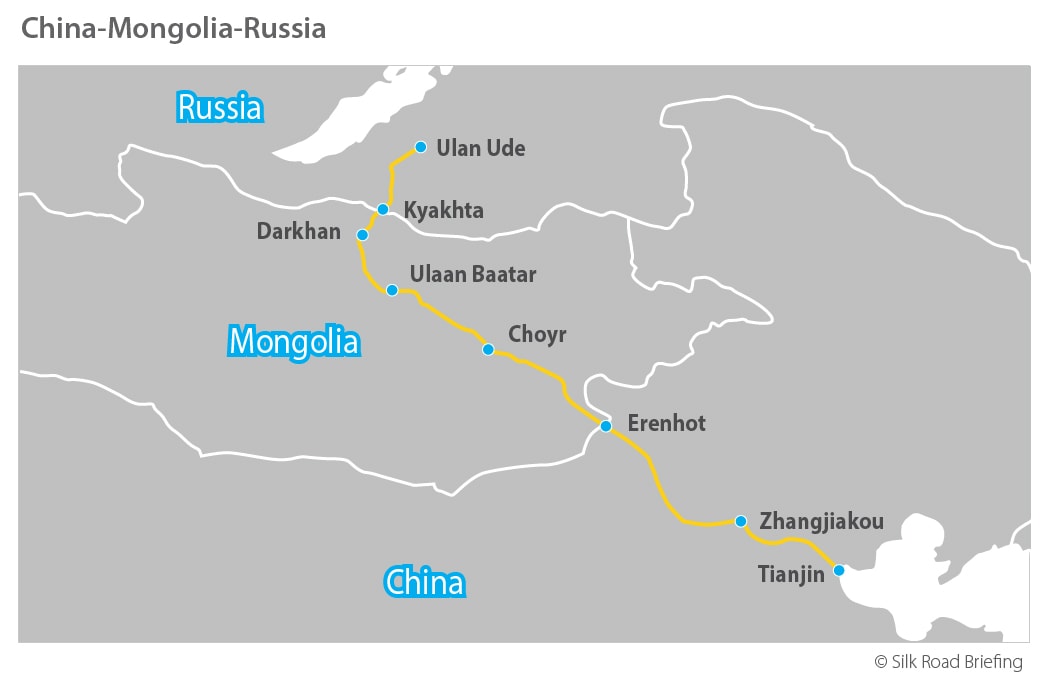Russia-Mongolia-China Road Corridor to be Ready in 2018
 The Russia-Mongolia-China economic corridor will open for international road transport next year, according to Russian Transport Minister Maxim Sokolov, who is reviewing preparations on the implementation of an intergovernmental agreement on international transport via the Asian network of highways.
The Russia-Mongolia-China economic corridor will open for international road transport next year, according to Russian Transport Minister Maxim Sokolov, who is reviewing preparations on the implementation of an intergovernmental agreement on international transport via the Asian network of highways.
“We expect that this agreement will come into effect and will be ratified shortly in our countries. Haulage via the Russia-Mongolia-China corridor will open already next year, in 2018. This is the development of the central railway corridor, organizing transit trucking activities on the Tianjin-Ulaan Baatar-Ulan-Ude route and paving a road along this route. The issue of obtaining bilateral and multilateral permission for hauling different types of cargoes between the countries is now under discussion. A data bank is being put together with a list of shipments that will include oil cargoes and unified containers.”
Sokolov said that Russia’s transport policy has taken priority within the framework of trilateral cooperation with Russia, Mongolia, and China. This is backed up by the Chinese Foreign Minister Wang Yi, who spoke in February of proceeding with the economic corridor project. He said construction of a transport corridor linking the three countries helps support economic development, and encourages Mongolia’s participation in international affairs.
Mongolia already acts as a connecting route between China and Russia via the Mongolian leg of the Trans-Mongolian railway. This is linked directly to Beijing, and proceeds via the Chinese Province of Inner Mongolia, passing through Erenhot where bogies are changed, before proceeding into Mongolia en route to Russia. The road route follows a similar course.
There are maintenance problems with the road network. Mongolia has a harsh climate, hot in summer, and dropping to -40 degrees in winter. Heavy freight, which already uses the route from Ulaan Baatar to Ulan Ude is unkind to the roads, which quickly develop damaged tarmac and potholes. Better quality road construction as well as regular maintenance teams will need to be deployed, as will a series of better quality stops for drivers, fuel, and supplies. Improvements have been made over the years, including the imposition of quality internet range along the Mongolian roads. For foreign investors familiar with providing haulage services along distant motorways, opportunities may exist.
About Us
Silk Road Briefing is produced and written by Dezan Shira & Associates. The firm provides European businesses and governments with strategic, legal, tax and operational advisory services to SMEs and MNCs investing throughout Eurasia and has 28 offices across China, India and the ASEAN nations, Russia and affiliates in Central Asia. We have specific and long term experience in China and the OBOR countries.
Please contact the firm at silkroad@dezshira.com or visit the practice at www.dezshira.com
Related Reading:
![]() China, Mongolia, and Russia Increase Trans-National Rail Traffic by 150 percent
China, Mongolia, and Russia Increase Trans-National Rail Traffic by 150 percent
![]() Iran & EAEU Agree On Free Trade; China, India, Mongolia, Pakistan, Singapore, South Korea & Thailand Set To Follow
Iran & EAEU Agree On Free Trade; China, India, Mongolia, Pakistan, Singapore, South Korea & Thailand Set To Follow
China’s New Economic Silk Road
This unique and currently only available study into the proposed Silk Road Economic Belt examines the institutional, financial and infrastructure projects that are currently underway and in the planning stage across the entire region. Covering over 60 countries, this book explores the regional reforms, potential problems, opportunities and longer term impact that the Silk Road will have upon Asia, Africa, the Middle East, Europe and the United States.






